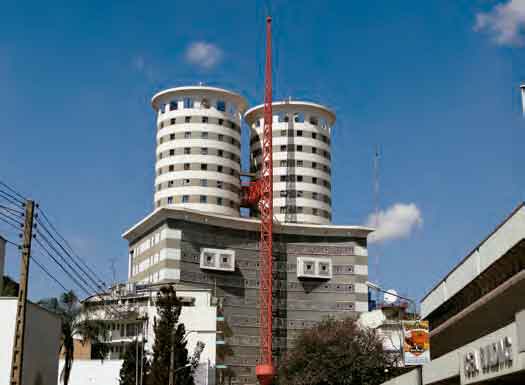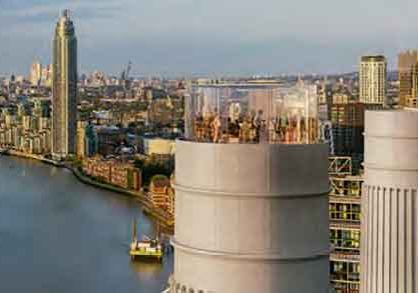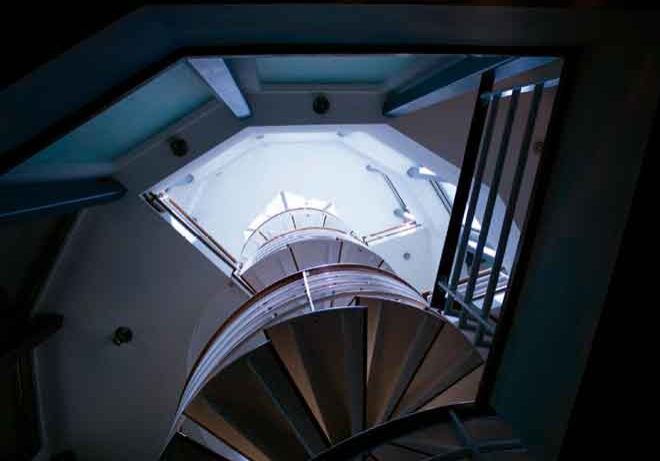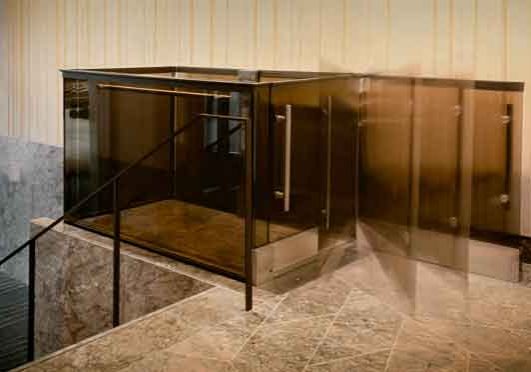Finding a Niche
Jan 1, 2019

Kenya’s ECL positions itself for growth by focusing on maintenance and repair.
As competition for new-installation contracts intensifies in the African vertical-transportation (VT) market as a result of booming construction, local VT companies are shifting their specialization to niche maintenance-and- repair work, leaving the manufacture, supply and installation of new units to the international OEMs. Many of these international firms have local subsidiaries or have entered into distribution and installation agreements with local entities to entrench their products across various applications, such as commercial, hotel, retail, residential, transportation, healthcare and parking.
Elevator Concepts Ltd (ECL), headquartered in Nairobi, Kenya, is one of the region’s small to medium-sized elevator enterprises that has opted to focus on maintenance, repair and other services as it eyes a larger share of the region’s market — one that’s being driven by rapid urbanization and increasing demand for sustainable and adaptable equipment. ECL Managing Director Ian Blackman states:
“We do not supply or install new equipment.We are not connected to any lift or escalator manufacturer. We have, however, developed a reliable network of spare-parts suppliers throughout the world, which enables us to provide quality service to our local customers. Offering quality maintenance on all major makes of equipment means that we have to stay abreast of all the major technological developments. We also carry out professional training courses, which helps ensure that we interact effectively with other professionals in the construction and transportation industries.”
ECL’s shareholders have been actively involved with business development since the company’s incorporation in Kenya as a VT consultancy in 2003, offering maintenance for all makes of elevators, escalators and moving walks. The company maintains some of the fastest lifts in East Africa, including the 4-mps gearless units in the Nation Centre along Nairobi’s Kimathi Street, in addition to those in a number of office buildings and apartments. It is among companies listed by Kenya’s state-owned Energy Regulatory Commission as an approved elevator services provider in the country’s VT market.
Blackman, who earned an MSc in Lift Engineering in the U.K., is the main driving force behind ECL, which he says was formed ECL maintains some of the fastest lifts in East Africa, including the 4-mps units at the Nation Centre in Kenya. after he realized VT consultancy services were in demand throughout East and Central Africa.
“The consulting started off well, but so many of our clients had issues with the quality of the maintenance they were receiving, so we decided to broaden our offering to maintenance services,” explains Blackman, who credits his achievements to the solid foundation he received in the lift business after graduating school.
“I was lucky to be offered a few engineering positions when I left school, but the one that stood out for me was with a lift company,” he states. Blackman completed a four-year apprenticeship with Marryat & Scott of London, focused on electronic engineering. After a decade of working in Europe, Blackman decided it was time to work farther afield. An opportunity came up in Kenya in 1990, and, almost 30 years later, “I’m still here!” he says.
ECL has embraced the use of technology to respond to clients’ needs and enable its technicians to take care of situations rapidly, in an effort to assert its position in the competitive East Africa VT market. “We have not taken any shortcuts in setting up our maintenance division,” Blackman says. “We invested in real-time, moving-map displays of all our technicians’ locations for best response times, and also keep a large local stock of spare parts to reduce downtime.”
Blackman says ECL’s typical customers “are not those who are looking for the cheapest price, but those who are willing to pay a fair price for quality of service.” Anyone who owns VT equipment will have invested a significant amount of money in it, and will want to maintain its value in addition to its safety and reliability, he says.
Many small and medium-sized lift and escalator companies want to expand to the larger African market. ECL, Blackman says, wants to strengthen its presence in the local market before venturing farther afield. ECL recently ended its consultancy services. The reason, Blackman says, is that it became apparent there was a great need for quality maintenance and repair services in the region. However, he says ECL has not scaled up marketing of its services, because, “We want our expansion to be steady, and this strategy has worked well so far, as the company has been able to meet its growth targets.” It is always open to new opportunities as they arise, however, he adds.
Blackman finds it difficult to single out the most significant project with which the company has been involved, because, “We truly believe that all of our maintenance clients are important, so none stand out significantly.” However, there is one job he will never forget. He remembers:
“Some years back, when I was working for an international supplier, we installed the first and only lift on the island of Lamu in Kenya’s coastal region. There were no roads in Lamu — only a small sea jetty — so the elevator equipment was transported from the mainland on a number of small dhows (traditional Arabic sailing boats), then from the jetty to the site on donkeys. We ensured the donkeys weren’t overloaded, and the elevator is still running well today!”
Blackman is chairman of the Lift and Escalator Technical Committee at the Kenya Bureau of Standards (KEBS), a government agency responsible for governing and maintaining the standards and practices of metrology in Kenya. Kenya’s VT industry, Blackman says, is headed in the right direction in terms of the country’s regulatory framework, which is supported by a good understanding by the KEBS local codes committee he chairs, although there still remains “a lot of work to do in the regulatory sector.” Although there are few international maintenance standards that apply in Kenya, and East Africa in general, ECL voluntarily complies with the relevant European Norms “in order to follow best practice and to ensure our customers receive top-quality services, including less-visible issues such as safety processes and training.”
Get more of Elevator World. Sign up for our free e-newsletter.









